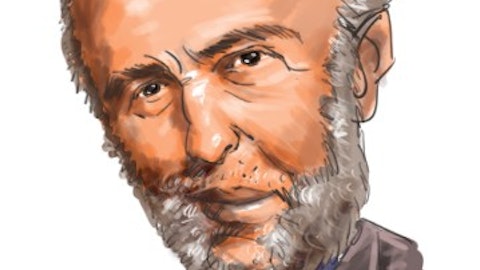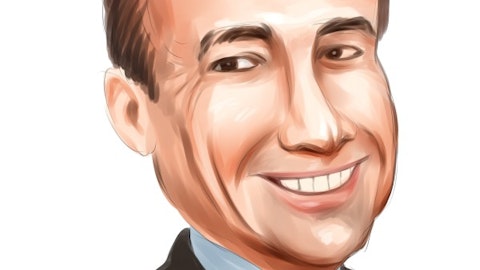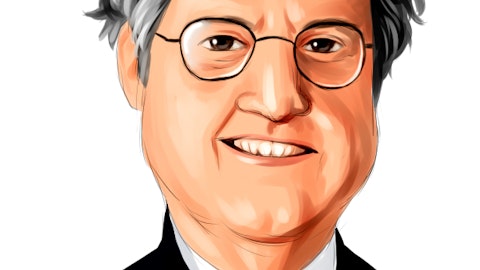
Zell sees too much uncertainty in the today’s world, including geopolitical concerns in the Middle East, slow global growth and too much cash flooding the financial markets due to quantitative easing. These are major headwinds for the stock market, but it continues to trend higher. Zell makes the observation that the stock market reflects the future, but questions how the stock market can be up so much when there are so many unknowns. Zell’s recommendation to investors is to make ‘black swan’ type bets.
Given Zell’s thesis we see defensive companies as solid bets, which are those stocks that will perform relatively well regardless of how the broader economy performs. These include Wal-Mart Stores, Inc. (NYSE:WMT), Dollar General Corp. (NYSE:DG), General Mills, Inc. (NYSE:GIS), Kellogg Company (NYSE:K) and PepsiCo, Inc. (NYSE:PEP). All of these companies have betas less than 0.5, and all but one have dividend yields greater than 2%.
Wal-Mart is the geographically diversified retail store operator with a 0.3 beta. Wal-Mart continues to show strong performance, with 2013 sales expected to be up 5.5% from last year, on the back of comp sales up 2.6%. The retailer also trades relatively cheap on a P/E basis at only 15x earnings, compared to Costco and PriceSmart, trading at 25x and 34x, respectively. Even with a continued weak economy, Wal-Mart should be able to perform relatively well given its low priced product offerings.
Dollar General has a beta of 0.5 and much like Wal-Mart should see limited downside given its low priced staple and discretionary items. This discount retailer trades in line on a P/E basis at 18x with its major peers Family Dollar and Dollar Tree. Dollar General is expected to gain new shoppers as it expands its consumables offerings, helping drive sales up 9% for 2013 from 2012, supported by a 5% increase in same store sales.
General Mills is a manufacturer and marketer of branded consumer foods with a low beta of 0.15 and the highest dividend yield of our defensive plays at 3.4%. General Mills has seen margins squeezed from higher input costs, but top line growth is expected to continue in 2013, with sales up 7% from 2012. General Mills’ acquired Yoplait in 2011, but still lags in the U.S. Greek yogurt category and has room to grow here.
Kellogg is similar to General Mills, being a manufacturer and marketer of food products. Kellogg does have a higher beta than General Mills at 0.5, but has a similarly high dividend yield at 3.4%. Kellogg’s latest earnings announcement showed positive growth in its Pringles business, and the company expects Pringles to be a long-term growth driver internationally, with Pringles generating around 10% of Kellogg’s revenues next year. Both General Mills and Kellogg trade in line on a P/E basis with each other at 15x and 16x, respectively, but below other peers Heinz and Hershey who both trade above 19x.
Pepsi is a beverage company with a beta of 0.5. Although Pepsi generally trades in line with Coca-Cola, Pepsi currently trades below Coca-Cola on a P/E basis and a beta basis, but has a higher dividend yield at 3.1%. Beverage sales in the Americas continues to struggle for Pepsi, but its international segment is expected to help offset this, driven by its further expansion internationally with the purchase of the Russian food and beverage company Wimm-Bill-Dann Foods. Check out whether Pepsi is a good investment.
We see all of these companies as key defensive plays and are most intrigued by Wal-Mart and General Mills. These two companies also saw the most robust fund interest of the five stocks listed. Wal-Mart saw Warren Buffett as its top fund owner of those we track in 2Q, with other notable investors being Jim Simons and George Soros. Check out all top funds loving Wal-Mart. General Mills saw Jim Simons as a top fund owner, and called Steven Cohen a shareholder at the midway point of 2012.





